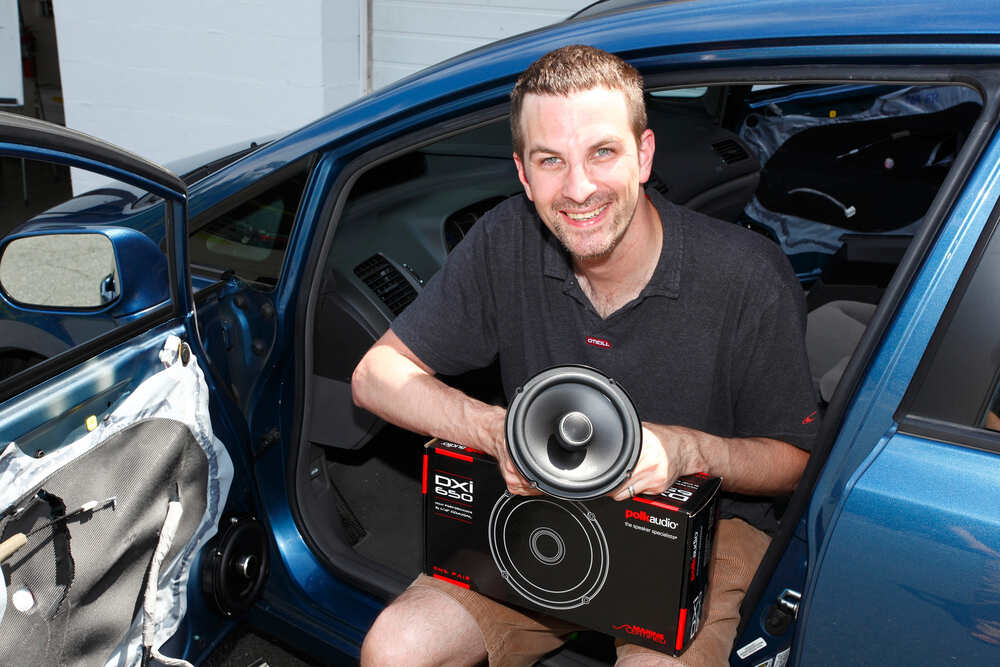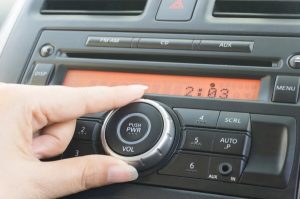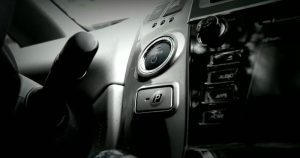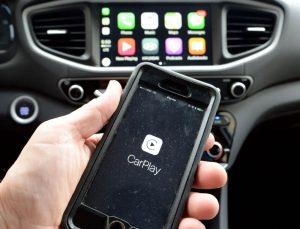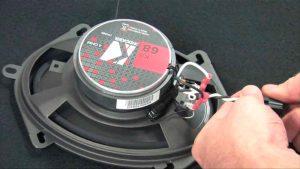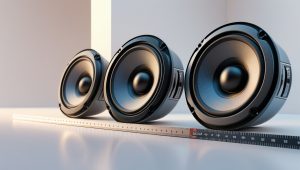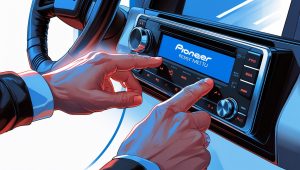Car speakers bring your driving experience to life, pumping out your favorite tunes or podcasts. But when they start crackling, buzzing, or go silent, the joy fades fast. You might wonder, how much does it cost to fix car speakers? The answer depends on several factors, like the type of speakers, the extent of the damage, and whether you repair or replace them. In this guide, we’ll break down the costs, explore repair options, and share tips to help you make the best decision for your car audio system. Let’s dive in and get your sound back on track.
Contents
- Why Do Car Speakers Fail?
- Factors That Affect Car Speaker Repair Costs
- Average Cost Breakdown
- DIY Car Speaker Repair: Step-by-Step Guide
- When to Repair vs. Replace Car Speakers
- Professional Car Speaker Repair: What to Expect
- Tips to Save Money on Car Speaker Repairs
- Upgrading Your Car Audio System
- How to Prevent Future Speaker Issues
- Conclusion: Get Your Car Audio Back in Tune
Why Do Car Speakers Fail?
Before we talk costs, let’s understand why car speakers malfunction. Knowing the root cause helps you estimate repair expenses and decide the best course of action.
- Blown Speakers: Playing music at high volumes for extended periods can overheat the speaker’s voice coil, causing it to fail. A blown speaker often produces no sound or a distorted buzz.
- Damaged Cones: The speaker cone, made of materials like paper or polypropylene, can tear due to wear, moisture, or physical impact. This leads to crackling or muffled audio.
- Wiring Issues: Loose, corroded, or damaged wires disrupt the connection between the head unit and speakers, resulting in intermittent or no sound.
- Faulty Head Unit or Amplifier: Sometimes, the problem lies not with the speakers but with the stereo or amplifier, which may need repair or replacement.
- Environmental Damage: Exposure to heat, humidity, or dust can degrade speaker components over time, especially in older vehicles.
By identifying the issue, you can better predict repair costs and avoid unnecessary expenses. Now, let’s explore the factors that influence the price of fixing car speakers.
Factors That Affect Car Speaker Repair Costs
The cost to fix car speakers varies widely, typically ranging from $50 to $500 or more. Several elements determine where your expenses fall. Here’s a closer look at the key factors.
Type of Speakers
Car speakers come in two main types: coaxial and component. Each has different repair or replacement costs.
- Coaxial Speakers: These combine the woofer, tweeter, and crossover into one unit. They’re common in most vehicles, easier to install, and cheaper to fix or replace. Repairing a coaxial speaker might cost $20-$100, while replacing a pair ranges from $50-$200.
- Component Speakers: These have separate woofers, tweeters, and crossovers, offering superior sound quality but higher costs. Repairs can range from $50-$150 per component, and replacing a full set might cost $200-$500 or more due to complex installation.
Severity of the Issue
The extent of the damage directly impacts costs. Minor issues are often inexpensive, while major problems demand more investment.
- Minor Fixes: Crackling caused by loose wiring or a blown fuse might cost $20-$100 to repair, especially if you handle it yourself. A quick trip to an audio shop can resolve these issues affordably.
- Major Damage: A completely blown speaker or a torn cone usually requires replacement. Depending on the speaker type and labor, this can cost $100-$500 for parts and installation.
DIY vs. Professional Repair
Your choice between tackling the repair yourself or hiring a professional significantly affects the budget.
- DIY Repairs: If you’re handy with tools, you can save on labor costs. Basic repairs, like fixing a loose wire or replacing a fuse, might only cost $10-$50 for parts. Replacing a speaker yourself could run $20-$200, depending on the speaker quality.
- Professional Services: Hiring an audio technician ensures quality work but adds labor charges. Expect to pay $50-$100 per hour, with complex jobs like component speaker installation taking 2-3 hours.
Vehicle Make and Model
Some cars, like luxury or high-end models, have complex audio systems that increase repair costs. For example, a BMW might require specialized tools or proprietary parts, pushing expenses toward the higher end. Standard vehicles, like a Honda Accord, typically have simpler systems, keeping costs lower.
Location and Shop Rates
Repair costs vary by region and shop. Urban areas with higher living costs often charge more for labor. Independent audio shops might offer better rates than dealerships, so shop around for quotes.
Repair vs. Replacement
Deciding whether to repair or replace your speakers also influences the price. Repairs, like patching a cone or rewiring, are often cheaper ($20-$150). However, if the speaker is old or severely damaged, replacement ($50-$500) might deliver better sound and longevity.
Average Cost Breakdown
To give you a clearer picture, here’s a breakdown of typical costs based on common scenarios:
- Wiring or Fuse Repair: $20-$100 (DIY or professional)
- Coaxial Speaker Repair: $20-$100 per speaker
- Coaxial Speaker Replacement: $50-$200 per pair
- Component Speaker Repair: $50-$150 per component
- Component Speaker Replacement: $200-$500 per set
- Labor Charges: $50-$100 per hour (1-3 hours for most jobs)
- Amplifier or Head Unit Repair: $150-$300 (if the issue isn’t speaker-related)
These estimates provide a rough guide. Your actual costs depend on your car, speaker type, and repair approach. For a precise quote, consult a local audio shop or test the speakers yourself to assess the damage.
DIY Car Speaker Repair: Step-by-Step Guide
If you’re eager to save money, fixing car speakers yourself is a viable option for minor issues. Here’s a simple guide to get started. Always disconnect the car battery before working on electrical components to avoid shocks.
Step 1: Diagnose the Problem
- Listen for Symptoms: Play music and note if the speaker is silent, crackling, or distorted.
- Check Connections: Inspect wires behind the head unit and speaker for looseness or corrosion.
- Test with a Multimeter: Measure the speaker’s impedance. A healthy speaker typically reads 2-4 ohms. Infinite impedance suggests a blown speaker.
Step 2: Gather Tools
You’ll need:
- Screwdrivers (flathead and Phillips)
- Wire strippers
- Multimeter
- Soldering iron (for wiring repairs)
- Replacement parts (fuses, wires, or speakers)
Step 3: Access the Speaker
- Remove the speaker grille or door panel using a screwdriver. Check your car’s manual for specific instructions.
- Carefully disconnect the speaker wires, noting their polarity (positive and negative).
Step 4: Repair or Replace
- Fix Wiring: Solder loose or damaged wires and secure connections. Clean corroded terminals with a wire brush.
- Patch a Cone: For small tears, use a speaker repair kit (available online for $10-$30) to apply adhesive patches.
- Replace the Speaker: If the speaker is blown, install a new one that matches your car’s size and impedance. Websites like Crutchfield offer fit guides to find compatible speakers.
Step 5: Test and Reassemble
- Reconnect the speaker and test the audio. Adjust the balance and fade settings to isolate the repaired speaker.
- If the sound is clear, reassemble the panel or grille.
DIY repairs work best for simple issues. For complex problems, like amplifier failure or component speaker installation, consider professional help to avoid costly mistakes.
When to Repair vs. Replace Car Speakers
Deciding whether to repair or replace depends on the damage, your budget, and your audio goals. Here’s how to choose:
- Repair If:
- The issue is minor, like a loose wire or small cone tear.
- The speakers are relatively new and high-quality.
- You want to save money and don’t mind temporary fixes.
- Replace If:
- The speaker is blown or severely damaged.
- The speakers are old, outdated, or low-quality.
- You want better sound quality with aftermarket speakers.
Replacing speakers often makes sense for older vehicles with factory-installed units. Upgrading to brands like JBL, Focal, or Kenwood can enhance audio clarity and bass, with coaxial speakers starting at $50 and component sets at $200.
Professional Car Speaker Repair: What to Expect
If DIY isn’t your style, professional repair offers peace of mind. Here’s what happens when you take your car to an audio shop:
- Diagnosis: Technicians test the speakers, wiring, and head unit to pinpoint the issue. This might cost $20-$50, often waived if you proceed with repairs.
- Repair or Replacement: The shop repairs minor issues or recommends replacement for blown speakers. They’ll provide a quote for parts and labor.
- Installation: Professionals ensure proper wiring, polarity, and fit, especially for complex systems. Labor typically takes 1-3 hours.
- Testing: They test the audio system to confirm clear sound across all speakers.
Choose a reputable shop with experience in your car’s make and model. Check reviews and ask for a detailed estimate to avoid surprises.
Tips to Save Money on Car Speaker Repairs
Fixing car speakers doesn’t have to break the bank. Try these strategies to keep costs low:
- Shop Around: Get quotes from multiple audio shops to find the best rates.
- Buy Aftermarket Speakers: Brands like Kicker or Skar Audio offer quality at lower prices than OEM parts.
- Do Partial Repairs: Fix only the affected speaker instead of replacing the entire set.
- Learn Basic Repairs: Handle simple tasks like wiring fixes yourself to avoid labor fees.
- Maintain Your System: Avoid maxing out the volume and clean speaker components regularly to prevent damage.
Upgrading Your Car Audio System
If your speakers are beyond repair, consider upgrading your audio system for a richer sound experience. Here are some options:
- New Speakers: Install high-quality coaxial or component speakers for better clarity and bass.
- Subwoofer: Add a subwoofer ($100-$300) for deep, powerful lows, ideal for hip-hop or EDM.
- Amplifier: Boost your system’s power with an amplifier ($100-$500) to drive new speakers.
- Head Unit: Upgrade to a modern head unit ($300-$700) with features like Apple CarPlay or Bluetooth.
A full system upgrade can cost $300-$1,000 or more, but it transforms your car into a mobile concert hall. Start with speakers and add components as your budget allows.
How to Prevent Future Speaker Issues
Once your speakers are fixed, take steps to keep them in top shape:
- Avoid High Volumes: Keep the volume below 80% to prevent overheating.
- Check Wiring Regularly: Inspect connections for corrosion or wear every few months.
- Use Quality Audio Sources: Stream high-resolution music to reduce strain on speakers.
- Protect from Elements: Park in a garage or use car covers to shield speakers from heat and moisture.
Regular maintenance extends the life of your audio system, saving you from frequent repairs.
Conclusion: Get Your Car Audio Back in Tune
Fixing car speakers can cost anywhere from $20 for a simple DIY wiring fix to $500 for professional replacement of high-end component speakers. By understanding the factors that drive costs—speaker type, damage severity, and repair approach—you can make an informed decision that fits your budget. Whether you choose to repair a torn cone, replace a blown speaker, or upgrade your entire system, the goal is clear: restore the joy of crisp, vibrant sound to your drives.
Ready to take action? Test your speakers with a multimeter, get quotes from local shops, or explore aftermarket options to elevate your audio game. With the right approach, you’ll be cruising to your favorite tracks in no time. Share your car audio tips or questions in the comments, and let’s keep the music playing
